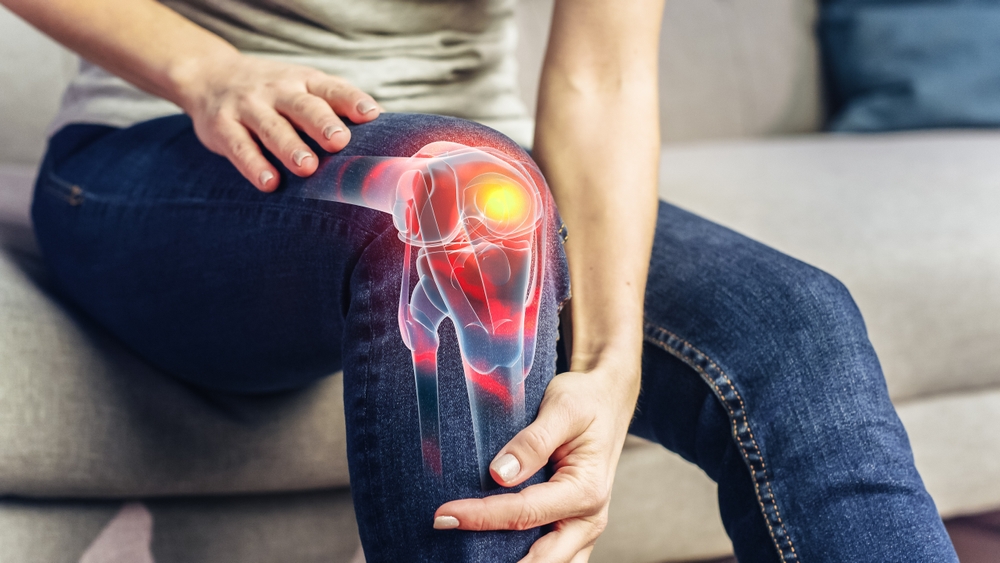The University of Oxford is leading a pioneering six-year, £11 million research program aimed at transforming chronic pain management through personalized brain-targeted treatments.
Supported by the Engineering and Physical Sciences Research Council (EPSRC), the project, known as EPIONE (Effective Pain Interventions Through Neuroengineering), brings together world-leading experts in engineering, neuroscience and clinical medicine to develop next-generation treatments that can reduce or even eliminate chronic pain.
Up to 28 million adults in the UK suffer from chronic pain, making it one of the most pressing public health challenges. It is a leading cause of disability worldwide, costing health services millions of dollars in treatment costs and costing economies billions of dollars in lost productivity.
However, despite its size, there have been few major advances in analgesics in recent decades. EPIONE is changing that by rethinking the way chronic pain is understood and treated.
Engineering meets neuroscience
Unlike traditional drug discovery approaches, EPIONE focuses on directly targeting pain networks in the brain.
Chronic pain is increasingly recognized as a disorder of the nervous system, often caused by disruption of brain signaling following injury or illness.
This project uses advanced sensor systems, neuromodulation techniques, and adaptive control algorithms to develop treatments that can detect and respond to pain signals in real time.
By combining engineering precision and neuroscientific insight, the program aims to design personalized, adaptive therapies that dynamically adapt to patient needs, and represents a significant departure from traditional fixed-dose treatments for chronic pain management.
A world-first innovation in chronic pain treatment
Over a six-year period, EPIONE is expected to deliver several breakthrough technologies, including:
An adaptive brain implant that senses and responds to pain signals in real time could pave the way for large-scale clinical trials and possible NHS implementation. Closed-loop drug delivery systems automatically adjust drug dosage, reducing the risk of side effects and addiction. Non-invasive stimulation techniques such as ultrasound and magnetotherapy can target multiple brain regions simultaneously. A smart feedback system that combines brain sensors and stimulators helps patients retrain their brains to manage pain more effectively.
These technologies could usher in a new generation of personalized chronic pain management, offering hope to millions of people who are unresponsive to existing treatments.
Collaboration and patient-centered design
EPIONE is co-led by Professor Tim Dennison from the University of Oxford’s School of Engineering and Professor Ben Seymour from the Nuffield School of Clinical Neuroscience.
The team includes collaborators from the University of Cambridge, University of Glasgow and UCL, as well as pain experts from the NHS and industry partners.
Importantly, people living with chronic pain play a central role in the design and testing of new interventions, ensuring that the resulting technologies are not only scientifically sound but also respond to real-world patient needs.
Professor Dennison said: “Each of EPIONE’s members are world-renowned experts in their respective fields, and this program is unique in bringing together this level of expertise to work closely on highly integrated projects such as this.”
“This will enable the development of smarter treatments for chronic pain that monitor the body and dynamically adjust treatment, rather than administering fixed doses.
“We are engaging people with lived experience with chronic pain to co-develop technology and research methods, particularly ways to study the role of nocebo and placebo effects in new interventions.
“Economics is also a consideration in our work, as we want to ensure that our technology can be used in the NHS and beyond.”
From the lab to the clinic
EPIONE will partner with Amber Therapeutics, an Oxford University spin-out company co-founded by Professor Dennison, whose Picostim-DyNeuMo deep brain stimulation implant can sense and adapt to a patient’s pain rhythm. This existing technology will serve as the foundation for EPIONE’s first clinical trial.
By combining cutting-edge science, patient collaboration, and practical application, the EPIONE program is a bold step in chronic pain management that promises to deliver smarter, safer, and more effective treatments for one of medicine’s most enduring challenges.
Source link

